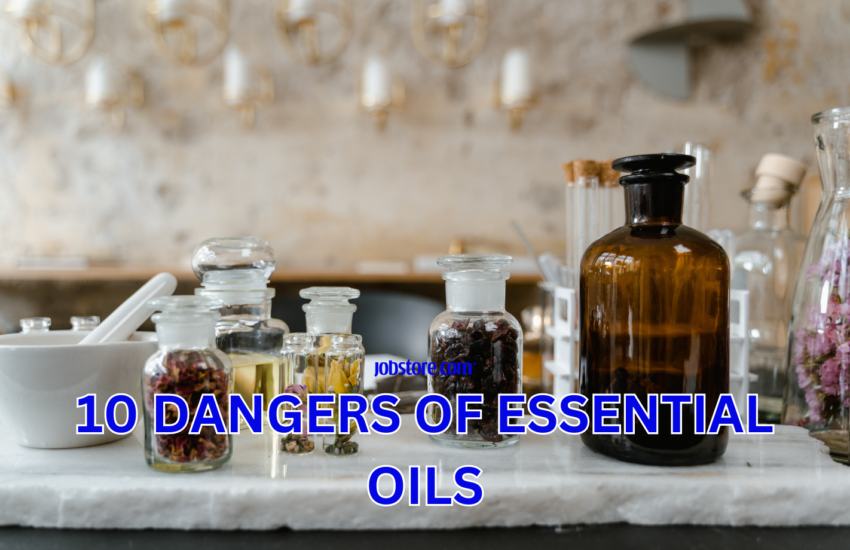Essential oils are natural aromatic compounds extracted from various parts of plants such as the flowers, leaves, stems, roots, and fruits. These oils capture the plant’s characteristic fragrance and are highly concentrated, containing the volatile compounds responsible for the plant’s aroma and potential therapeutic properties. Essential oils have been used for centuries in various traditional medicinal and wellness practices such as aromatherapy, massage therapy, and natural remedies.
Essential oils can be extracted through different methods, including steam distillation, cold-pressing (for citrus oils), solvent extraction or CO2 extraction. Each method results in a specific type of oils with unique properties and applications.

These are the main risks and dangers of essential oils:
1. Skin Irritation & Allergic Reactions
Essential oils are extremely concentrated and potent. Therefore, it can cause skin irritation, redness and even severe allergic reactions when it’s applied directly onto the skin. It is important to dilute them properly with carrier oils before applying to the skin. Also, performing a patch test on a small area first can help identify if you have an allergic reaction.
2. Sensitization
Constant and repeated exposure to certain essential oils can lead to sensitization. As a result, the body becomes hypersensitive to the oil which will lead to adverse reactions upon long-term exposure.
3. Phototoxicity
There are a few essential oils, particularly citrus oils such as bergamot, lime and lemon can cause phototoxic reactions. For instance, severe burns and discolouration can happen when the skin is exposed to sunlight.
4. Ingestion Risks
Essential oils can be hazardous if ever ingested and should always be kept away from children when unsupervised. This is because some oils can be toxic when ingested and may lead to issues such as digestive problems, liver damage or other health problems.
5. Respiratory Problems
Inhaling certain essential oils especially in large quantities can trigger respiratory issues. Particularly, individuals with asthma and other respiratory conditions.
6. Interaction with Medications
Essential oils may interact with certain medications. This can lessen their efficacy or even cause adverse reactions. It is crucial to consult with a proper healthcare professional if you are taking any medications and are considering using them.
7. Toxicity in Pets
Some essential oils can be toxic to pets such as cats and dogs. This is because animals have different metabolisms and certain oils can be fatal if ingested or excessively diffused in the air.
8. Not Safe for Pregnant Women & Children
Certain essential oil products are not safe for use during pregnancy or for young children. For example, some oils can induce contractions or even cause other complications during pregnancy while young children may be more sensitive to the effects.
9. Quality & Purity Issues
Poorly regulated essential oil products may be adulterated or of low quality. Therefore, it possesses a higher risk of harmful effects.
10. Risk of Flammability
Never use them near open flames or high heat sources as essential oils are highly flammable.
To ensure safe use of essential oils, it’s crucial to follow proper guidelines, consult with a qualified aromatherapist or healthcare professional, and be mindful of individual sensitivities and medical conditions. Additionally, pregnant women, individuals with certain health conditions, and pet owners should exercise extra caution or avoid certain oils altogether.

